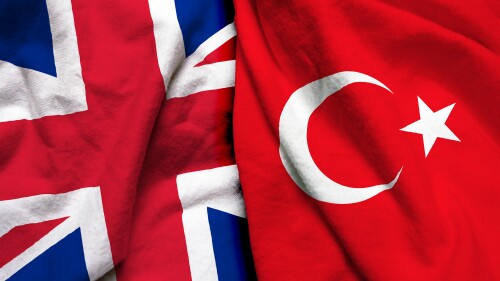In response to Iran’s Ministry of Defence and Logistics of Armed Forces’ delivery of tactical ballistic missiles to Russia, the Council of the European Union imposed restrictive measures on seven individuals and seven entities, including three Iranian Airlines (Saha Airlines, Mahan Air, and Iran Air) and two procurement firms. While these sanctions could harm the interests of the Iranian regime in Europe, Turkey appears poised to undermine their effectiveness.
Over the past four years, Turkey has not only strengthened its economic and political ties with Iran’s Islamic regime but has also provided a safe haven for Turkish companies to bypass sanctions and smuggle prohibited components, including aircraft and drone parts, to Iran.
Among the three recently sanctioned airlines, Iran Air is the only one still operating flights to Europe. However, Mahan Air, which the Islamic Revolutionary Guard Corps (IRGC) partially owns, is the largest and most significant Iranian airline. It serves as a vital source of financial income for the IRGC and plays a crucial role in its logistics for its Qods Force external operations unit, transporting personnel, foreign proxies, and weapons from Iran to various Middle Eastern countries, including Lebanon.
Several Turkish companies with connections to sanctioned Iranian entities help circumvent U.S. and European sanctions.
Mahan Air currently operates flights between Iran and Turkey, using its wide-body commercial aircraft to transport passengers and cargo between Tehran, Ankara, and Istanbul. These flights enable Mahan Air to smuggle various prohibited items into Iran, ranging from aircraft parts to piston engines used in armed drones like the Shahed-129 and Mohajer-6.
Several Turkish companies with connections to sanctioned Iranian entities help circumvent U.S. and European sanctions on the Iranian aviation and defense industries. Since 2020, for example, the Istanbul-based Nilin Aviation Engineering Havacılık Muhendislik has procured spare parts for Airbus A340-313 and A340-642 passenger aircraft on behalf of Mahan Air, shipping them to Iran either on Mahan Air flights or by road. Other Turkish companies follow Nilin Aviation’s example.
Since the Biden administration took office, sanctions intensity has decreased, making it easier for entities to evade U.S.-imposed sanctions. Simultaneously, the improved relationship between Turkey and Iran has made Turkey a safe haven for sanctions evaders. The State and Treasury departments are aware of these evasion activities but have not pressured Turkish counterparts to stop these activities.
Despite recent European sanctions and the forthcoming Treasury Department sanctions that may come into force as early as this month, the Turkish government is likely to continue allowing sanctioned Iranian entities to bypass these sanctions on its territory. To address this issue, the U.S. government must overcome its reluctance to challenge President Recep Tayyip Erdoğan’s policies and take punitive measures against Turkey, allowing the Treasury Department to sanction Turkish firms involved in evading sanctions for sanctioned Iranian entities.







